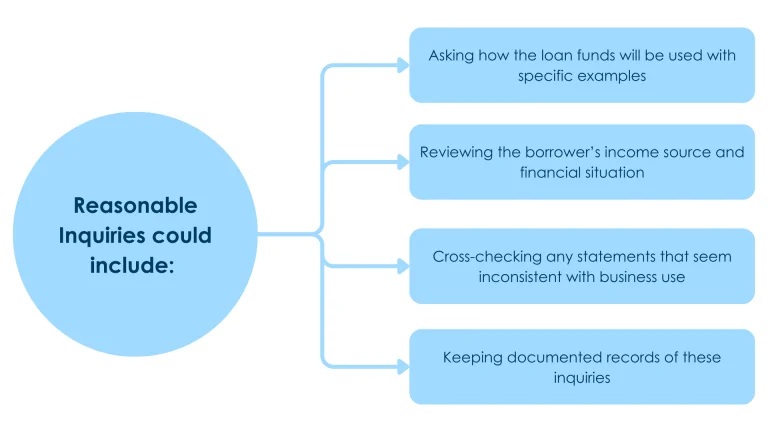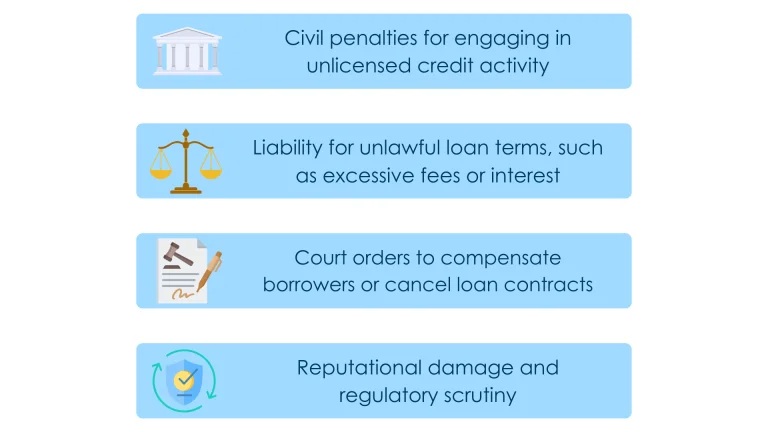- within Finance and Banking topic(s)
- in United States
- with readers working within the Banking & Credit industries
- within Technology, Corporate/Commercial Law and Insurance topic(s)
- with Inhouse Counsel
The Federal Court of Australia has found that business lender Green County Pty Ltd (Green County) and business loan introducer Max Funding Pty Ltd's (Max Funding) approach to providing credit to small businesses resulted in them engaging in unlicensed credit activity in relation to loans provided by Green County to two consumers.
Loans for business or commercial purposes are not regulated by the National Consumer Credit Protection Act 2009 (NCCP Act) or the National Credit Code (NCC) (which is found in Schedule 1 of the NCCP Act) if they are genuinely and predominantly used for business. The NCC does apply to loans which are wholly or predominantly for personal, domestic or household purposes.
Under the NCC, lenders can seek a business purpose declaration which is signed by the borrower. Where such a declaration is obtained, the presumption is that the loan is not wholly or predominantly for personal, domestic or household purposes. The Lenders are required to make reasonable inquiries into a borrower's purpose for obtaining a loan. Where the lender knew (or would have known, if they had made reasonable inquiries) that the loan was sought for personal, domestic or household purposes, then the declaration will be ineffective.
Neither Green County nor Max Funding hold a credit licence. They relied on the fact that they do not lend to consumers who seek credit wholly or predominantly for "personal, domestic or household purposes".
The court ruled that Green County and Max Funding could not merely rely on a signed business purpose declaration to avoid the application of the NCC and the licensing requirement. Both entities are required to conduct reasonable inquiries into the applicant's actual purpose of the loan. The court ruled that if the entities had made reasonable inquiries, they would have known that the loans were not truly for business purposes and instead were subject to the NCC and credit licensing obligations. having the allegation and the finding mashed together.
What "Reasonable Inquiries" Means
ASIC and the court have emphasised that business purpose declarations cannot be used as a box-ticking exercise. Licensees must be satisfied that the loan is in fact for business purposes and make reasonable inquiries as to the true purpose of the loan.
Reasonable inquiries could include:
- Asking how the loan funds will be used (with specific examples);
- Reviewing the borrower's income source and financial situation;
- Cross-checking any statements that seem inconsistent with business use;
- Keeping documented records of these inquiries.

Key Takeaways
Private and non-bank lenders who are not licensed to provide consumer credit, should reassess their onboarding procedures to ensure they include reasonable inquiries as to the purpose of the loan. Lenders' procedures must not be a box-ticking exercise and must outline reasonable steps to protect vulnerable consumers.
Because the loans in the Green County case were wrongly treated as business loans, the consumers were denied consumer protections afforded to them under the NCC, such as:
- They didn't receive the appropriate disclosures they were entitled to;
- They were charged excessive interest and fees;
- They were denied legal rights during financial hardship; and
- They had no access to an independent dispute resolution process.
This enforcement action is a cautionary example for all lenders to ensure compliance with credit licensing and consumer protection laws.

Further Reading
- Federal Court finds Green County and Max Funding engaged in unlicensed lending practices
- Australian Securities and Investments Commission v Green County Pty Ltd [2025] FCA 367
- ASIC enforcement priorities
- National Consumer Credit Protection Act 2009
- National Credit Code
- Regulatory Guide 209 (RG209) – Credit Licensing: Responsible Lending Conduct.
-
The content of this article is intended to provide a general guide to the subject matter. Specialist advice should be sought about your specific circumstances.

